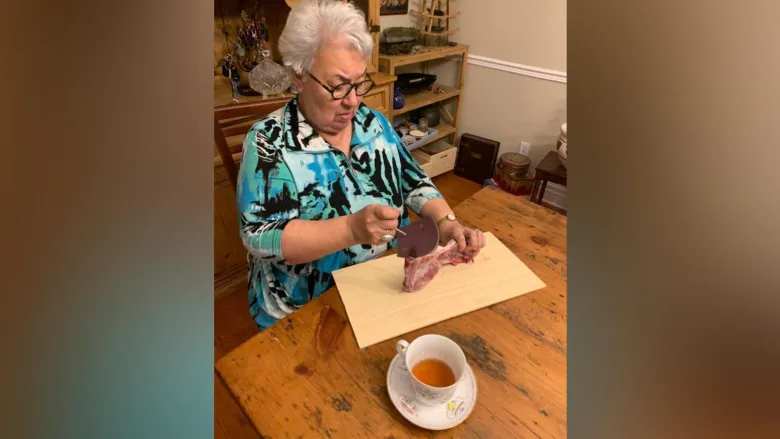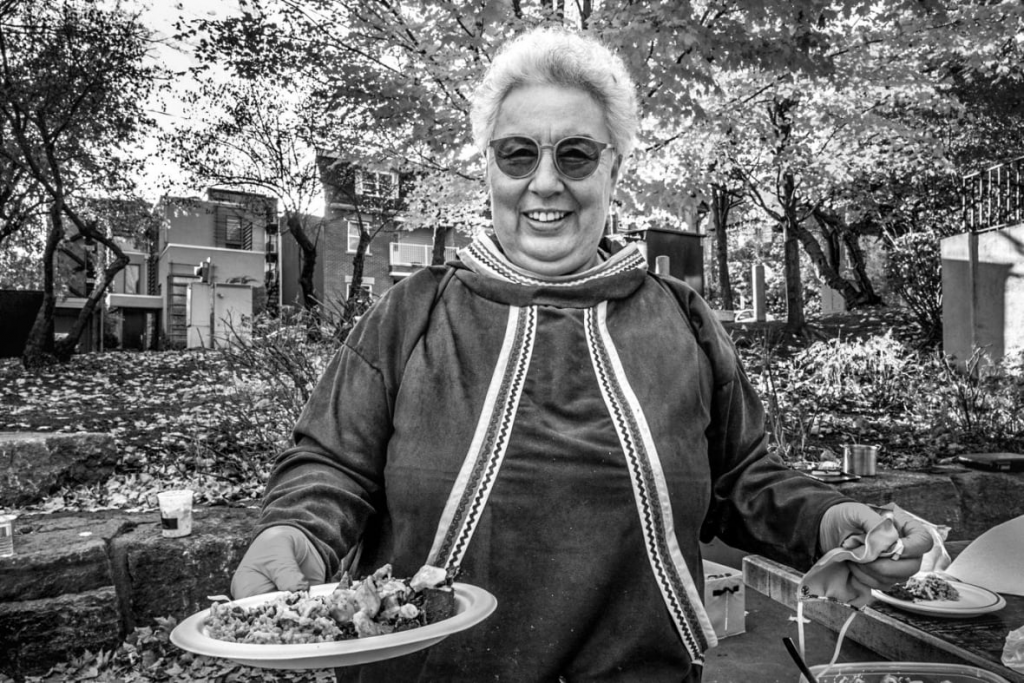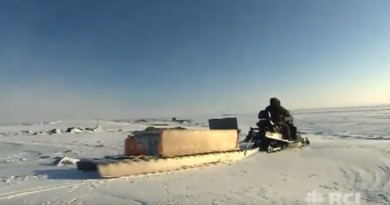Flagged for posting about walrus meat? Social media ‘violations’ discriminatory, says former Nunavut MLA

· CBC News
“My favourite food! Walrus! I would pay anyone to get me some!”
Former Nunavut MLA Manitok Thompson was expressing her excitement on Twitter when the 12-word tweet was flagged for violating the rules.
It was called “excessively graphic media” and Twitter issued a notice saying exposure to gratuitous gore can be harmful, “especially if the content is posted with intent to delight in cruelty or for sadistic pleasure.”
Thompson was in shock. She had to delete her post to remain on the platform.
“I was not selling walrus meat, I was just posting about it to ask if someone can go and pick me some meat and send it to me … it’s a very big discrimination to our culture not to be allowed to post our food or our way of living,” Thompson said in an interview with CBC.

This is not the first time Indigenous culture has been flagged as a violation on social media. Award-winning Inuk singer Tanya Tagaq had her Facebook account suspended after posting a photo featuring seal fur. Inuk crafter Kenneth Mackay had a Facebook ad rejected as his traditional Inuit knives were labelled as “weapons. And Facebook has apologized previously for removing posts selling sealskin products — once in 2017, and again in 2019.
Social media content moderation is not unique to Facebook and Twitter.
Popular northern TikToker Hovak Johnston recently mused publicly about getting rid of her TikTok account due to the high violation reports.
“Twitter and Facebook need to look at their policies and stop discriminating against Inuit,” said Thompson, whose post was removed Oct. 19 — one week before Elon Musk officially took over the social networking site.
More education needed, professor says
All social media platforms have their own version of community guidelines outlining what could be a violation, such as bullying, nudity or violent content.
But just sharing your life as an Indigenous person should not be so controversial, said Kim TallBear, a professor with the Faculty of Native Studies at the University of Alberta.
“We’ve known ever since settlers got [to North America], they’ve been offended by Indigenous ways of life and have sought to extinguish them — whether they extinguish them in real life or whether they can extinguish representations of them on social media,” TallBear said in an interview with CBC.
Part of the solution would be getting more Indigenous people into tech fields, TallBear said.
“It’s too bad the burden is always on us, but … you know, we tend to understand these things better and I think if you have Indigenous people in tech within those companies, they’re going to be better able to flag what is actually inappropriate content,” TallBear said.
Education is also key, the professor said, noting workers in social media and tech platforms should have knowledge of race and Indigeneity.
“The public education that most of us go through, K through 12, there’s very, very little treatment of these kinds of issues. So we do need to address it in the university, and even in these tech training programs that people go to,” TallBear said.
Social media corps say moderation not an exact science
Social media moderation is a mix of technology and human teams.
While TikTok says it strives to be an inclusive space for positive, creative expression, a spokesperson for the company acknowledged neither technology nor humans get moderation decisions correct 100 per cent of the time.
“Creators can appeal decisions they believe to be incorrect directly in-app. If content or accounts have been incorrectly removed, the content will be reinstated and/or the penalty is erased and does not impact the account going forward,” a TikTok spokesperson wrote in an emailed statement.
Twitter will be forming a content moderation council with widely diverse viewpoints.
No major content decisions or account reinstatements will happen before that council convenes.
— Elon Musk (@elonmusk) October 28, 2022
Meanwhile for Meta, formerly named Facebook Inc., a spokesperson said the company wants to help prevent species extinction.
“While we recognize that not all seal species or seal populations are endangered or threatened, some are. As a result, we enforce a broad global standard to ensure the most vulnerable species globally are not put at risk,” a Meta spokesperson wrote.
Meta also noted it routinely seeks feedback from Indigenous people and Canadians with unique needs so the company can “take cultural and regional considerations into view when crafting policies that impact our global community.”
Twitter representatives did not respond by deadline.
Double standard for content moderation
It feels targeted to be flagged for graphic media when Inuit respect animals and the land, Thompson said.
“Our traditional law always says to kill right away, so the animal does not feel … as you see with the cows and chickens and pigs, they are being tortured, they are in a very bad [situation] in some cases,” Thompson said.
Two days after her original post was reported, as an experiment, the former MLA posted pictures of animals on livestock farms on Twitter, but that post was never flagged as a violation.
I’m an animal lover for cows / other farm animals. This is the worst animal cruelty there is. Inuit elders would be shocked! Inuit law would not allow this treatment of animals. Inuit sacred law is not to mistreat animal but to kill right away for food. pic.twitter.com/lAxRodaI8u
— Manitok Thompson ᒪᓃᑐᖅ ᑖᒻᓴᓐ (@ManitokThompson) October 21, 2022
As an Inuk, Thompson said she could never imagine putting an animal in that situation.
“Even to see polar bears in the zoo, and beluga whales — it hurts our inner being,” Thompson said.
The former MLA said she would like to meet with policy-makers at Facebook and Twitter to showcase Inuit culture and create better understanding.
“Come to my kitchen.”
Related stories from around the North:
Canada: “We’re not just talking about reconciliation, we’re doing reconciliation,” say seal hunters, Eye on the Arctic
United States: This Alaskan spice shop brings new flavors to Indigenous dishes, Alaska Public Media



